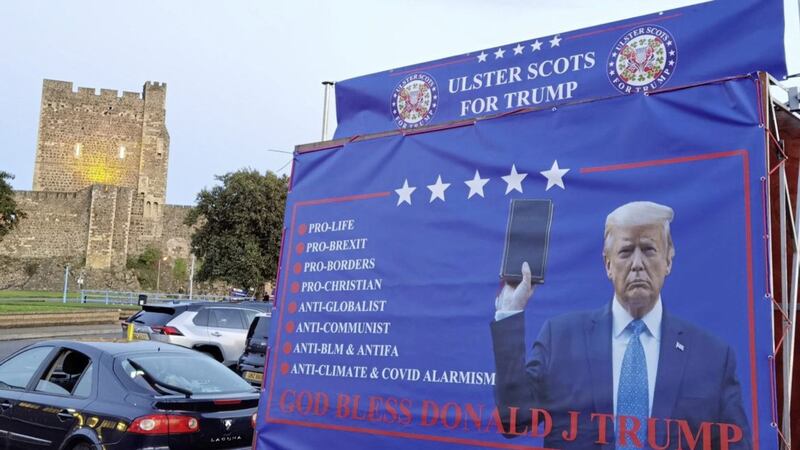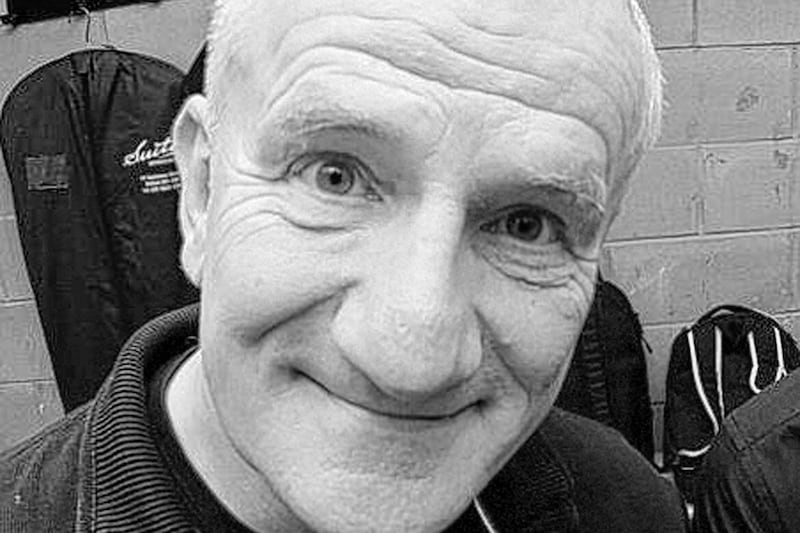"HIS primary rules were: never allow the public to cool off; never admit a fault or wrong;
never concede that there may be some good in your enemy; never leave room for
alternatives; never accept blame; concentrate on one enemy at a time and blame him for
everything that goes wrong; people will believe a big lie sooner than a little one; and if you
repeat it frequently enough people will sooner or later believe it."
Having read that opening paragraph, who do you think it's about? Nope, sorry, wrong
answer; it isn't Donald Trump, hopefully the soon to be ex-President of the USA. It's a
psychological analysis of Adolf Hitler done by psychiatrist Walter C Langer after the war.
The concept of the 'big lie' was coined by Hitler in his book, Mein Kampf.
It's important to be clear, I'm not accusing Trump of being another Hitler; that would be an
exaggeration. Instead, what I'm suggesting is the existence of frightening similarities
between the two, as demonstrated by Trump's policies and temperament – the most
dangerous being his refusal to confirm he will allow a peaceful transition of power if he
loses this Presidential election.
Nor am I arguing Trump is the first politician to lie; sadly, for many, the words 'politician'
and 'liar' are synonymous. What sets Trump apart was his decision to adopt lying as a
matter of policy. In July, the Washington Post described his time in power as a "tsunami of
untruths", estimating he'd been responsible for 24,000 false or misleading claims during his
four years in office.
This stratagem of mendacity stretches back to his 2016 campaign when his chief strategist,
Stephen K Bannon, realised his biggest adversary wasn't Hillary Clinton or the Democrats but the media, a problem he dealt with by advocating, "the way to deal with them is to
flood the zone with s***". Trump later sacked Bannon – along with most of his White House
staff – but stuck with his advice, coining the term 'fake news' for all but his slavering cronies
at Fox News.
Lying and misinformation on such an industrial scale has resulted in a US electorate unable
to distinguish fact from fiction. So bad has the problem become that fact-checking
computer programmes are now used by most media outlets to check the veracity of any
statement emanating from the White House.
In this column in November 2018, I suggested Trump's Twitter posts were problematic, as
"there doesn't seem to be any editorial input to his online rants". This is no longer the case,
with both Twitter and Facebook flagging some of his comments this year as being examples
of 'potentially misleading information'.
Instead of contrition, Trump reacted by threatening to "strongly regulate" or close them down, today's equivalent of the burning of books in 1940s Germany.
During the final Presidential debate, Trump, with his characteristic braggadocio, argued only
Abraham Lincoln had done more for blacks in America, yet only months earlier he was
forced to erect a wall around the White House to keep out Black Lives Matter protesters.
Such factual dissonance has never bothered a President whose linguistic quirks have
fascinated since he hit the world stage. In Trump's world, things aren't just 'great', they're the 'greatest great' there's ever been.
Speaking in what some have described as 'Trump patois', his utterances have amused and
confused in equal measure, being littered with digressions, non sequiturs and hard-to-
follow tangents.
As an example, when speaking in 2015 on the Iran nuclear deal, he rambled; "Look, having nuclear – my uncle was a great professor and scientist and engineer, Dr John Trump at MIT; good genes, very good genes, okay, very smart, the Wharton School of Finance, very good, very smart – you know?"
While linguists have struggled to explain his speaking style, with theories ranging from
cognitive impairment to an unfiltered stream of consciousness, I think I may have
discovered the truth – Trump is speaking an American variant of Ulster Scots.
Practically every US President in history has been claimed by some Irish village, with Barack
Obama linked to Moneygall in Co Offaly and Joe Biden featuring on a wall mural in Ballina,
Co Mayo. The only exception, until recently, was Donald Trump – then the poster above
appeared in Carrickfergus.
Seemingly, not only does Ulster Scots blood run through Trump's veins, he possesses the 'hamely tongue'. Should be a comfort, as it'll qualify him for a grant when he hopefully loses the Presidency in a couple of days.









